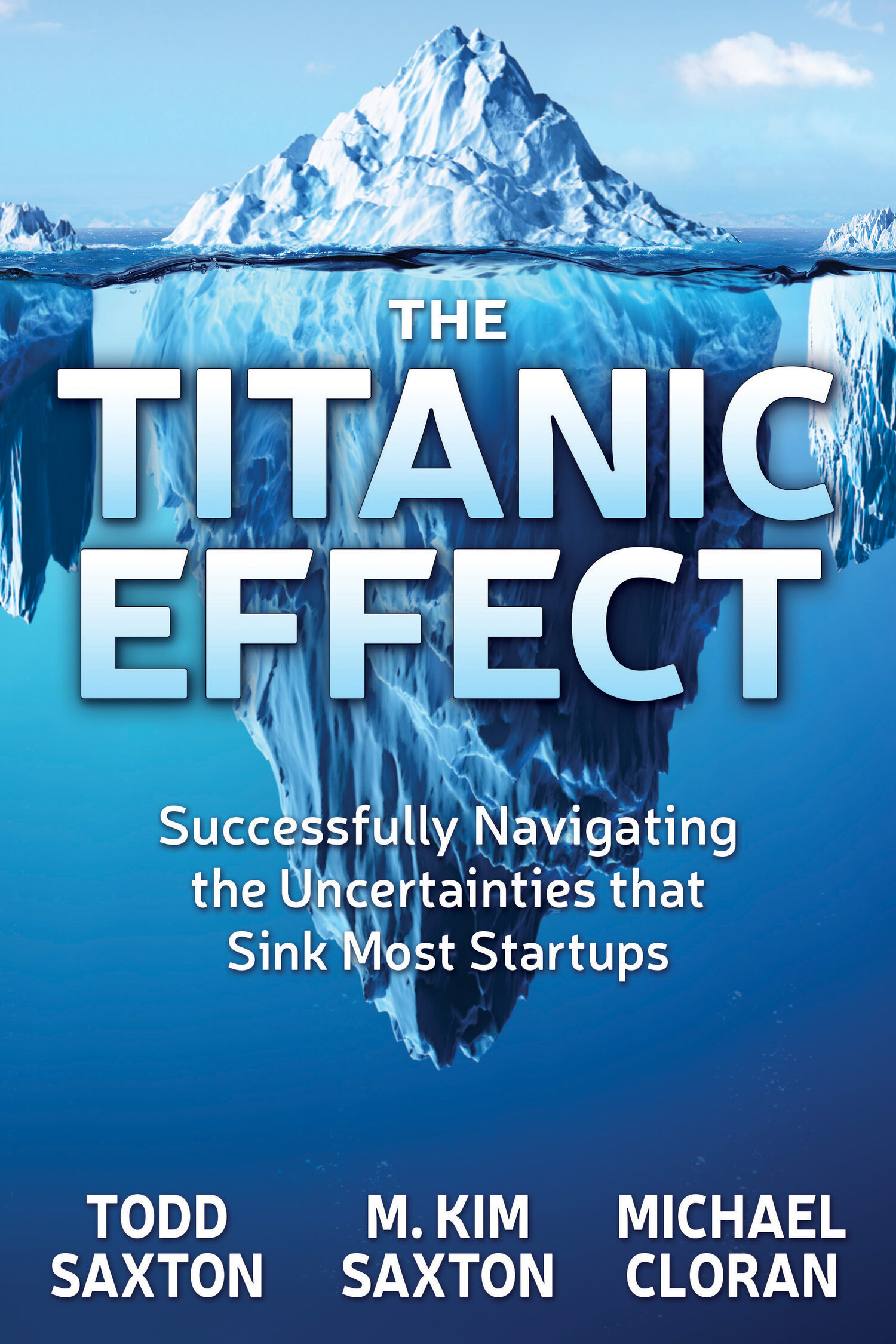Most of our blogposts have focused on positive steps startups can take to navigate their launch and success. For example, we have talked about product/market fit, pivoting, and what proof of concept means. But there are some phrases that have become part of the startup world lingo that we believe are misleading or inappropriate. So here are our top three pet peeves:
The 10 Steps to Physically Starting a Business
Someone who read our startup book, The Titanic Effect, reached out to us to say, “I think I understand the decisions I need to make. Now, I am ready to start my business. What are my first steps?” While our last blogpost shared how to develop a process for making complex decisions, this one is for those of you who are ready to actually start your business. So, here are your first 10 steps. In case that number intimidates you, they are interrelated and can be done concurrently. You are already working on another step while completing an earlier one. And we assume you already have the business idea. These are the steps to physically start that business.
Decisions, Decisions: How Startups Need to Approach Decision Making
We recently started reading Steven Johnson’s book Farsighted: How We Make The Decisions That Matter The Most. The essence of the book is that complex decisions require a thoughtful and intentional process to increase the odds of having a favorable outcome… Here are three key elements to good decision making in the startup context:
The logic is very similar to our framework in The Titanic Effect. Making important decisions under conditions of uncertainty can have unanticipated consequences—what we call debtbergs in our framework—in a variety of areas including people, markets, technology/product, and strategy. Understanding the tradeoffs and implications of these decisions is important for complex strategic choices like those that startups make on a regular basis. We map out many of the common mistakes founding teams make that can subsequently sink their startups.
Even Startups Need the Right Tool for the Right Job
Recently, we were doing a trail run at a state park. We tend to run for a reasonable amount of time. That means that we need to carry some sort of liquids to hydrate. For years, we’ve used a Fuel Belt to carry a couple of 8-ounce bottles we can sip from. But, we recently switched to a Nathan hydration pack. During my first run, I realized how much more pleasant and faster my run was with the new hydration pack. How can such a simple change have a meaningful impact on my run?
Well, the two hydration options really have different purposes. We got the belts when we were mostly running on streets. But when we moved to trails, the bottles topple out when you run down even little hills. When this happens, and it happens alot, you have to stop, pick the bottle up, clean the dirt off the top, and then be prepared to get some grit in your mouth anyway. It’s manageable, but it takes time. Plus, no one likes dirt with their drink. The pack is just better for the trails – that’s where it was designed to be used.
Focused—or Closed-Minded? There is a Difference
We are big believers in focus. As one serial entrepreneur we know is fond of saying, you can’t get anywhere by trying to “boil the ocean.” That is, if you try to do too much too fast you will fail. At the same time, one of our recent blogs explored the notion of luck. It highlights that a combination of mindfulness and directed energy can increase some types of luck to put your startup in a better position for success. Exploration is a key element of this part of the journey. So when do you explore and consider many alternative directions? When do you zero in on something and doggedly pursue it? How can you stay focused, without being too closed-minded to miss opportunities? This is a very delicate balance, and we thought a blog on the topic might be helpful.
It’s Smarter to be Lucky than it’s Lucky to be Smart
Many of us are familiar with some version of this phrase that we’ve quoted from Pippin, The Musical. The idea is that if one is born lucky, they can acquire “smartness” through effort, over time. If one is born smart, that’s great—but you may never acquire luck. Of course, if you were born NFL Colts quarterback Andrew Luck, arguably you have the best of both worlds.
There is some bit of luck in avoiding hidden debts. Missing icebergs (or “debtbergs”) is not justabout navigation. Luck, fortune, and icebergs are inextricably linked. We thought we would devote this blog to a richer exploration of luck in the entrepreneurial world.
Lessons Learned from Intrapreneurship and Entrepreneurship
Guest Blog by Sunny Lu Williams (sunny@techserv.io)
At the book launch for The Titanic Effect: Successfully Navigating the Uncertainties that Sink Most Startups, Kim and Todd asked me to share my personal insights leading innovation activities both within my former employer of 13 years, Telamon Corporation, and now my own company, TechServ. Here are the 3 ideas I shared about how I manage the uncertainty to succeed:
Know your Role on the Rig– You have to start by knowing your own strengths and weaknesses. Then, build a team to supplement your strengths. Teams’ skill sets should enhance the whole, especially complementing where the leader is weak. Be flexible about what role you take on as a leader, working from your strengths…
How to Navigate The Titanic Effect Blog
To the Titanic Effect followers: This is an exciting week for us. The printed copy of the book was released earlier this week! If you are new to the party, here is a brief video summarizing the book’s contents, with props from a few endorsers: http://bit.ly/TitanicEffect.
We have been writing a weekly blog since October. It has been a lot of fun and a good learning experience for us. We’ve creatively thought about how to package the book’s key contents in bite-sized morsels. To be honest, it is also a lot of work! But our followers have grown over that time. We hope this effort will continue to “scale” as the book gets out there. We also realized that the long scrolling list of blog topics online is quite a challenge to “navigate.” In fact, a newcomer might find it intimidating. Even a hard core follower might have difficulty finding that blog they liked on product/market fit, for example.
With that in mind and to celebrate the book launch, we are using this week’s blog to recap our blogs by category, with a brief guide to how to “consume” them. This is a longer blog than usual, but we wanted to be comprehensive.
What to Look For in Startup Advisors
It’s clear that startups cannot “go it alone.” First, a founder needs to be coachable - learn more about coachability at our previous blogpost on Foundersplaining. They need supporters to help them get connected to employees, customers and investors. If you want to understand more about how and why supporters (we call them venture advocates) help startups, check out our academic article – Venture Advocate Behaviors and the Emerging Enterprise.
5 Tips for Living with the Uncertainty of a Startup
Investors will pressure you to mitigate as much risk in every aspect of your business. You control for as many variables as possible, but how do you live with so many unknowns?
Normalizing uncertainty will not only help you succeed with your startup, it will help you become more of yourself and allow you to be fully present with your family, friends, and colleagues. The following practices will help you develop confidence, deepen relationships with influencers, and get you through those tough times when you don’t have a crystal ball to predict the outcomes in your future.







